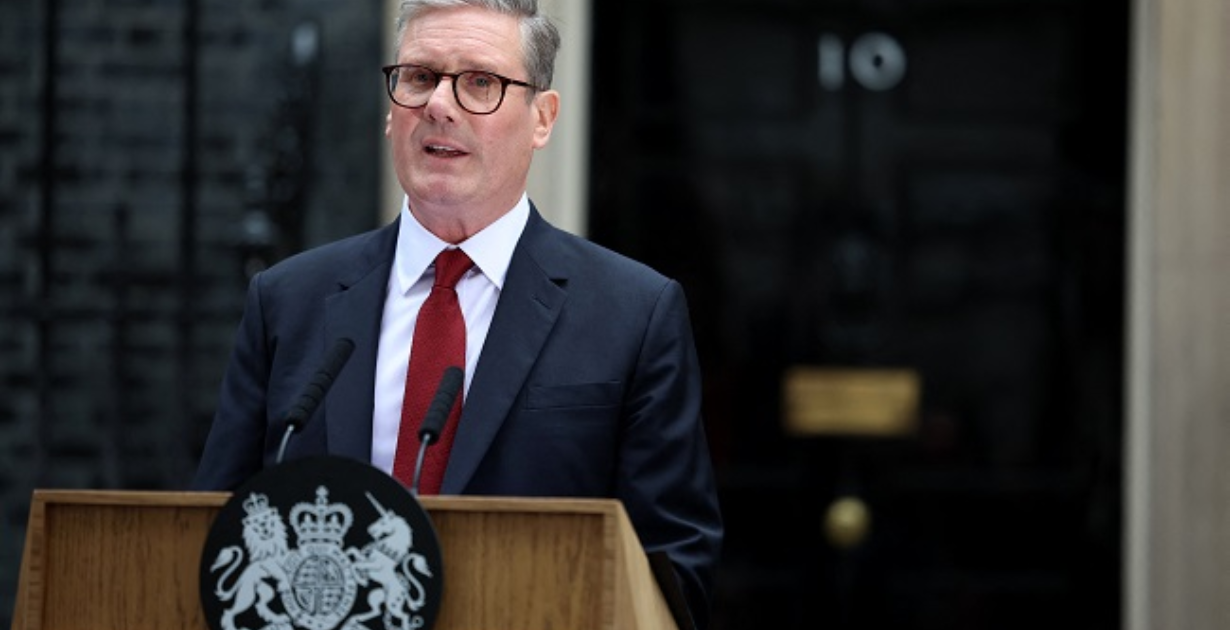Car Tariff: UK Taking Time to Consider Trade War With U.S.- P.M
Prime Minister Sir Keir Starmer has stated that the United Kingdom would not be “jumping into” a trade agreement with the United States.
He also stated that the government was attempting to avoid tariffs through “intense negotiations” and would be “pragmatic and clear-eyed” in its response.
Downing Street sources however noted that the United Kingdom would not hesitate to respond to US tariffs if necessary.
The government is currently in the midst of last-minute negotiations with the White House in anticipation of a 25% tax on car imports and the potential imposition of broader tariffs on other products on April 2.
In contrast to other nations, the United Kingdom is attempting to secure an exemption by arguing that its trading relationship with the United States is relatively equitable.
Despite warnings that prices could increase for consumers, US President Donald Trump has implemented a series of tariffs that target products from other countries.
He argues that these measures will benefit American manufacturers and safeguard employment.
Businesses in the United States that import vehicles will be subject to charges beginning on April 3, with tariffs on parts expected to be implemented in May or later.
The UK’s potential retaliation in the event that tariffs are implemented remains uncertain.
From duties on sectors where British products are particularly significant to the United States, to concentrating on specific products such as Harley Davidson motorcycles, there is a variety of options.
However, ministers are opposed to a trade conflict, despite the United Kingdom’s warnings.
The independent Office for Budget Responsibility has cautioned that a reciprocal trade war would almost entirely eradicate the surplus the chancellor has left to adhere to her self-imposed fiscal rules and would decimate economic growth by billions.
Dame Meg Hillier, a former Labour minister and chair of the Commons Treasury Select Committee, has cautioned that the government’s dedication to free trade will be put to the test in the coming weeks as a consequence of Trump’s tariff changes.
Trump has declared that the 25% levy would result in “tremendous growth” for the industry, as it would encourage investment and employment creation in the United States.
However, there are apprehensions that the action may result in the temporary cessation of substantial auto production in the United States, an increase in prices, and a deterioration of relations with allies.
Mexico was the primary supplier of cars to the United States last year, accounting for approximately $240 billion (£186 billion) in trade and approximately half of total sales.
South Korea, Japan, Canada, and Germany were the next largest suppliers with about eight million cars imported.
According to the Society of Motor Manufacturers and Traders (SMMT), the United States is the second largest market for UK cars after the European Union, and UK car exports are valued at approximately £7.6 billion annually.
It was “not surprising but, nevertheless, disappointing” that Trump made the announcement, according to the SMMT.
The tariffs were met with criticism from world leaders shortly after they were made public.
On Thursday, German Economy Minister Robert Habeck stated that the European Union must “respond firmly,” while French President Emmanuel Macron characterized it as a “waste of time” and encouraged Trump to reevaluate his actions.
news via inbox
Get the latest updates delivered straight to your inbox. Subscribe now!




